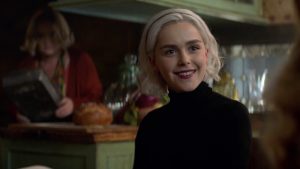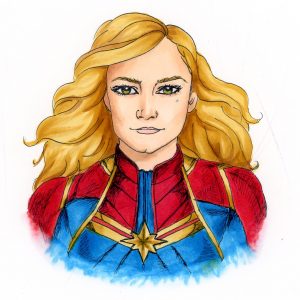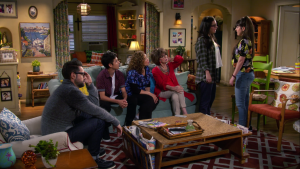“Dear White People” struggles to carry a story in its third volume
October 21, 2019
Volume 3 Rating: 6.5/10
Netflix’s most prominent social justice show Dear White People returned for its third volume this August. The past two volumes took the world by surprise with their intricate analysis of racial and social dynamics in modern America and received multiple NAACP awards for their groundbreaking representation of the racism and cultural bias that still plagues our society, which is far from the ‘post-racial’ America we claimed existed after the Obama Administration. Including the prevalence of spectacular, detail-oriented cinematography, and bright palette-based wardrobes. However, despite all the amazing feats this show has procured so far, I couldn’t help but notice that something was missing this volume.
The 3rd season does attempt—in its own way—to inform returning viewers of a considerable shift. The first episode begins with Joelle Brooks (Ashley Blaine Featherson) informing Winchester University that she will be taking over the infamous campus-wide ‘Dear White People’ podcast. “So the show’s gonna be a little different with ya girl,” Brooks states. By different, she means different from the previous host Samantha White’s (Logan Browning) style. The podcast’s purpose on campus was to spread racial and social knowledge to the university’s mostly white student population. But now, the show’s whole dynamic is changing, and it doesn’t seem like they know where they’re going; unconventional doesn’t always mean good.
My annoyance with the volume doesn’t stem from the change from White to Brooks. It’s certainly understandable, in fact, expected. Especially because the entire show is based on the idea that our social and political representatives have to change in order to achieve a more perfect society. Which is exactly what they ended up doing what they did on the show. However, the shift could have been better accomplished.
Let’s start from the beginning of the volume, where we experience the first of many setbacks. The viewer experiences a large deviation from the characters that they left from the last volume, into completely different people. Samantha is no longer inspired in her podcast show, Lionel (DeRon Horton) is no longer passionate about investigative journalism, and Joelle isn’t the confident stubborn girl that she was in Vol. 2. The show does acknowledge that Vol. 3 is a bit of a change, even going as far as having several characters state that change should occur, otherwise life becomes like “the third season of a Netflix show”. However, it seemed that the show’s shift in change had more to do with not knowing where to take the story from here rather than a change of pace.
Moreover, the degree to which they change simply does an injustice to the characters that we had come to know so far. The past volumes created amazing characters and they deserve a more composed and cohesive follow-up. There truly was no aim in attaching us to the personalities that all of these characters held in Vol’s 1-2 because they don’t reflect those characteristics anymore. Change is good, but too much change can cause your audience to question your show.
Their writers should realize that the cliffhanger ending to Vol. 2 set the expectations high this time around, and before this show is worth watching again, their first step should include the process of redeeming the characters that won our hearts back in the very first season.




